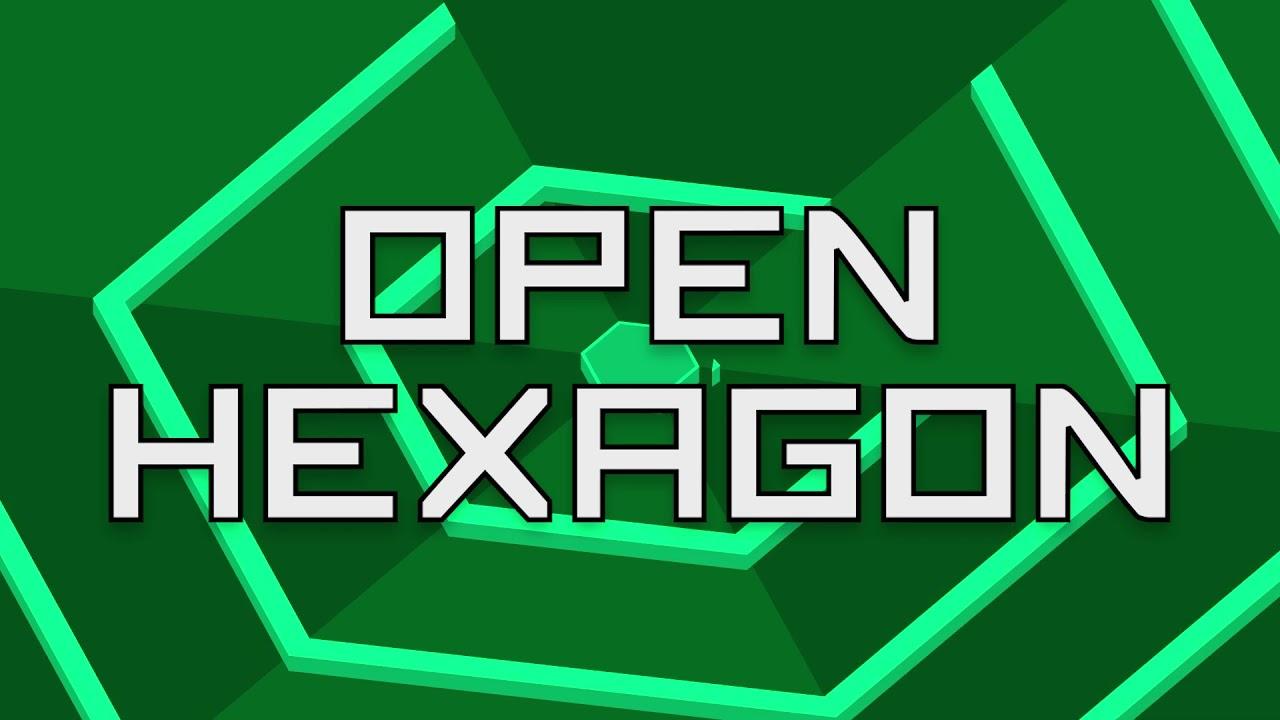Open Hexagon is very much Super Hexagon hyped up to max, open source and just absolutely nuts to play. A fresh upgrade is out now and it sounds great, especially for Linux desktop and Steam Deck players.
In version 2.1.7 the developer mentioned it "adds three new ranked packs, significantly optimizes various aspects of the game's performance, and finally provides a native Linux build that works great out of the box on Steam Deck, Ubuntu, and Arch Linux".
For those that don't know it the idea is simple: survive as long as you can. With only a few buttons to press it's simple enough but incredibly hard to master as you try to avoid all the obstacles.
While the game on a basic level was taken from Super Hexagon, the developer of Open Hexagon takes it to a whole different level with multiple new game mechanics to melt your brain like curving and accelerating walls, you really need concentration for this one. Built for modding too so you can make your own crazy stuff in it.
Never seen it? Original release trailer is below:

Direct Link
I expect that the developer is worried that people are going to take the Steam version and pirate it for some reason, but the people that want to do that aren't going to not do that just because of his EULA. And the developer of ΔV, who's been quite chatty about their findings from doing game development, has found that [people will pay for your game even when they don't have to](https://www.reddit.com/r/gamedev/comments/v0eq5e/you_probably_dont_know_why_people_are_buying_your/), after they accidentally included the whole game as the demo: "But they still chose to pay me, because they want to. Not to get access - they already have that. "
Quoting: CatKillerThat's some weird licencing. The version that's on github is under the [AFL 3](https://github.com/vittorioromeo/SSVOpenHexagon/blob/master/LICENSE), but the version that's on Steam has [an additional EULA](https://store.steampowered.com//eula/1358090_eula_0) on top of Steam's normal restrictions that says, amongst other restrictions, "Vittorio Romeo shall at all times retain ownership of the Software as originally downloaded by you and all subsequent downloads of the Software by you. The Software (and the copyright, and other intellectual property rights of whatever nature in the Software, including any modifications made thereto) are and shall remain the property of Vittorio Romeo." Open source stuff being dual-licensed by the copyright holder is fine, of course, but that second licence means that the project can't take contributions from anyone else. And it means that if you give the developer money then you get less of a product than if you don't.Hey, I'm Vittorio, the developer of the game. I'll admit that I am quite ignorant on the subject of licensing. When I released the game, I just looked on tldrlegal for a license that seemed reasonable to me, and according to the page they have on AFL 3.0, I don't see anything particularly concerning or limiting:
I expect that the developer is worried that people are going to take the Steam version and pirate it for some reason, but the people that want to do that aren't going to not do that just because of his EULA. And the developer of ΔV, who's been quite chatty about their findings from doing game development, has found that [people will pay for your game even when they don't have to](https://www.reddit.com/r/gamedev/comments/v0eq5e/you_probably_dont_know_why_people_are_buying_your/), after they accidentally included the whole game as the demo: "But they still chose to pay me, because they want to. Not to get access - they already have that. "
https://www.tldrlegal.com/license/academic-free-license-3-0-afl
Could you please elaborate on why AFL might be a poor choice? Is there something bad about it that is not evident from the tldrlegal page?
Regarding the EULA, I added it only because it was recommended on several game development pages and forums I follow. I've read that without an EULA a malicious agent might resubmit my game to Steam with minimal changes, even as a paid product, and I wanted to avoid that.
Not sure how to improve the situation, but would happily do so if someone can point me in the right direction.
Quoting: SuperV1234Could you please elaborate on why AFL might be a poor choice? Is there something bad about it that is not evident from the tldrlegal page?
There's nothing wrong with the AFL as far as I'm aware. It's OSI-approved and is probably fine. If you're unfamiliar with open source licensing, it might be worth having a chat with someone more familiar, so that if there's a particular aspect that you're after - whether your software is copyleft, for example, then maybe they'll be able to find a different licence that better meets your needs, but that part's fine. The odd thing is to license your software as open source, but then put additional EULA restrictions on it when people give you money; normally giving someone money gets you fewer restrictions.
Regarding the EULA, I added it only because it was recommended on several game development pages and forums I follow. I've read that without an EULA a malicious agent might resubmit my game to Steam with minimal changes, even as a paid product, and I wanted to avoid that.Someone taking someone else's game and listing it on Steam happens rarely regardless of licence. An additional EULA won't prevent that, just like it won't prevent piracy: the people that want to do that will do it anyway. Should it ever happen to you, a ticket with Valve will get the other one de-listed.
I'd suggest having a think about why you want your software to be open source - whether you just want people to be able to study your work, whether you'd like other people to contribute, whether you'd like other people to use your work as the basis of their work, and so on. There is a wide range of different open source licences to achieve different aims; the AFL might be exactly right for what you're after, or there might be a different one that's a better fit. The extra EULA doesn't seem to me to be providing any function; the only people that will pay any attention to it are those that want to follow the rules already.
Quoting: CatKillerThank you for sharing your thoughts. I have removed the EULA.Quoting: SuperV1234Could you please elaborate on why AFL might be a poor choice? Is there something bad about it that is not evident from the tldrlegal page?
There's nothing wrong with the AFL as far as I'm aware. It's OSI-approved and is probably fine. If you're unfamiliar with open source licensing, it might be worth having a chat with someone more familiar, so that if there's a particular aspect that you're after - whether your software is copyleft, for example, then maybe they'll be able to find a different licence that better meets your needs, but that part's fine. The odd thing is to license your software as open source, but then put additional EULA restrictions on it when people give you money; normally giving someone money gets you fewer restrictions.
Regarding the EULA, I added it only because it was recommended on several game development pages and forums I follow. I've read that without an EULA a malicious agent might resubmit my game to Steam with minimal changes, even as a paid product, and I wanted to avoid that.Someone taking someone else's game and listing it on Steam happens rarely regardless of licence. An additional EULA won't prevent that, just like it won't prevent piracy: the people that want to do that will do it anyway. Should it ever happen to you, a ticket with Valve will get the other one de-listed.
I'd suggest having a think about why you want your software to be open source - whether you just want people to be able to study your work, whether you'd like other people to contribute, whether you'd like other people to use your work as the basis of their work, and so on. There is a wide range of different open source licences to achieve different aims; the AFL might be exactly right for what you're after, or there might be a different one that's a better fit. The extra EULA doesn't seem to me to be providing any function; the only people that will pay any attention to it are those that want to follow the rules already.






 How to setup OpenMW for modern Morrowind on Linux / SteamOS and Steam Deck
How to setup OpenMW for modern Morrowind on Linux / SteamOS and Steam Deck How to install Hollow Knight: Silksong mods on Linux, SteamOS and Steam Deck
How to install Hollow Knight: Silksong mods on Linux, SteamOS and Steam Deck